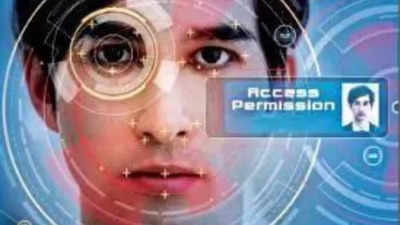- News
- City News
- Hyderabad News
- ‘Telangana ahead of other states in using facial recognition technology tools in depts’
Trending
‘Telangana ahead of other states in using facial recognition technology tools in depts’
NITI Aayog's report indicates that Telangana leads in utilizing facial recognition technology (FRT) with four models across various departments. While most states have adopted only one tool, the report stresses the need for careful implementation and a comprehensive regulatory framework, similar to those established by countries like the US and Canada.

In the report titled ‘AI Adopting the Framework: A Use Case Approach on Facial Recognition Technology,' NITI Aayog said Telangana has more FRT models than the Centre, highlighting the great potential of employing FRT for identity verification.


NITI Aayog said 17 such tools have been proposed and executed by various states and the Centre. With the exception of Uttar Pradesh, which implemented two tools, all other states adopted one tool. Punjab, Tamil Nadu, Maharashtra, Andhra Pradesh, UP, Gujarat and Delhi adopted these tools in select govt departments, it said.
Additionally, the Centre has proposed establishment of a national automated facial recognition system (AFRS), for which a detailed project report has been made. Unique Identification Authority of India initiated a pilot project involving authentication-based facial recognition in Jharkhand and the Central Board for Secondary Education is utilising face matching technology, a source said.
Telangana has four such initiatives already implemented which include degree online services by Telangana Board of Intermediate Education in 2020, face recognition application by Telangana State Election Commission on a pilot basis in 2020, real-time digital authentication of identity (for authentication of dead or alive status of pension claimants under the T-Folio app of Telangana IT department in 2020), identification used and implemented to match photos and identity of missing children implemented in 2018 by the police department.
Notably, Delhi (2017) and Telangana (2018) were pioneers among Indian states in experimenting with FRT, while a majority of states initiated their efforts after Covid-19. The central govt commenced implementation of the technology in 2018.
Experts said that adoption of emerging technologies was bound to rise. However, they called for utmost caution even within govt departments. "Three critical factors must be considered when utilising AI-based technologies such as FRT, particularly with extensive data usage. First, data accuracy is essential as it pertains to inputs used to develop the technology. If the govt were to implement this, it is imperative that e-KYC (which includes other biometric information of individuals) is integrated," said Karnak Roy, assistant professor at the Administrative Staff College of India, and expert in data-driven decision-making.
Prof Roy said most importantly, a robust cyber security framework must be in place, as large datasets are inherently vulnerable to breaches. Currently, India lacks a comprehensive regulatory framework, he said.
Interestingly, the NITI Aayog report also highlights the pressing need for a regulatory framework, emphasising that countries such as the United States, Canada, Austria and the United Kingdom and Europe have already established or proposed such frameworks for extensive use of FRT and similar tools. "The journey for India and the states in FRT implementation is going to be a long haul and experts should come up with effective systems," Prof Roy said.
End of Article
FOLLOW US ON SOCIAL MEDIA










